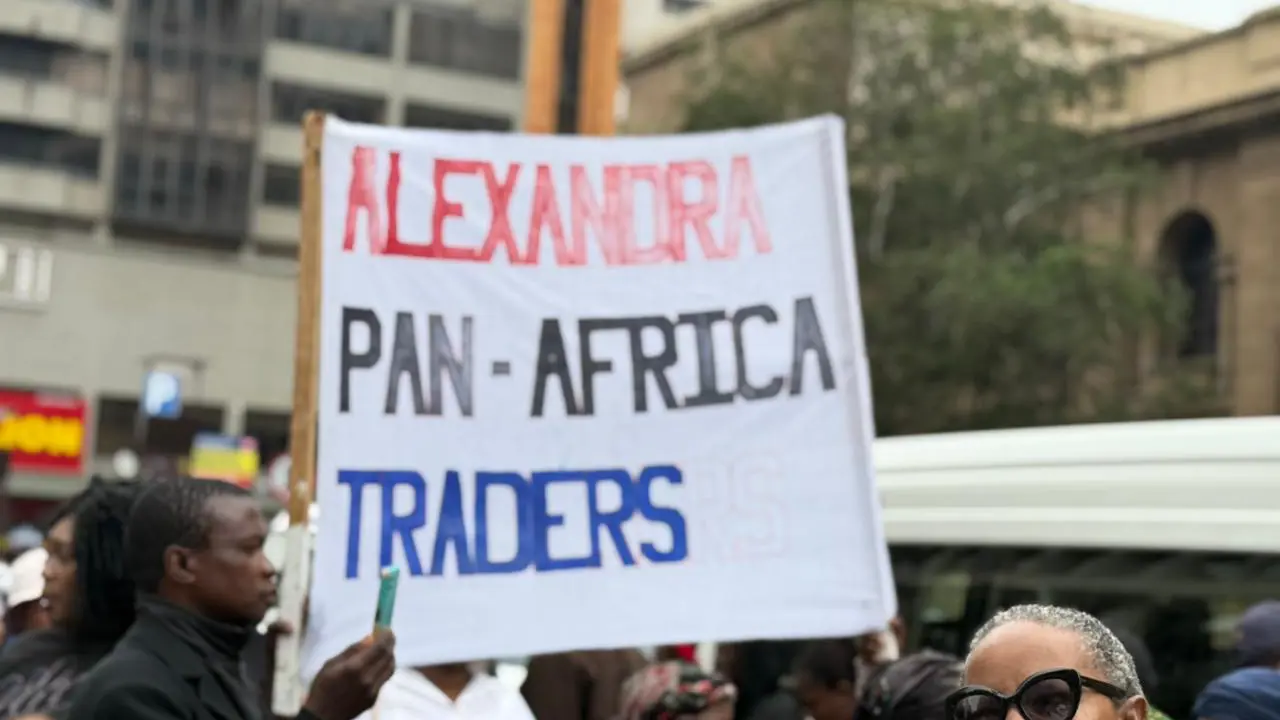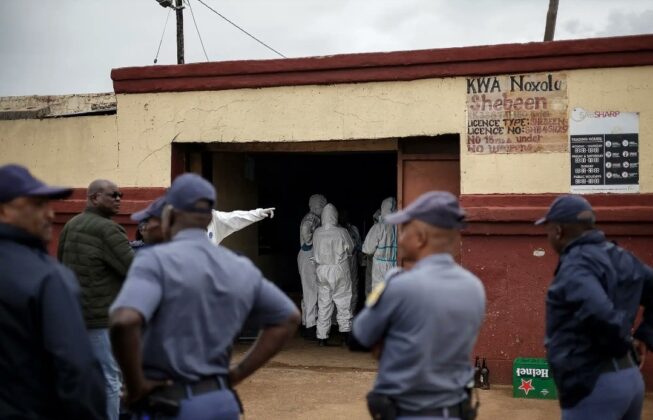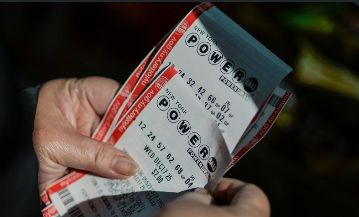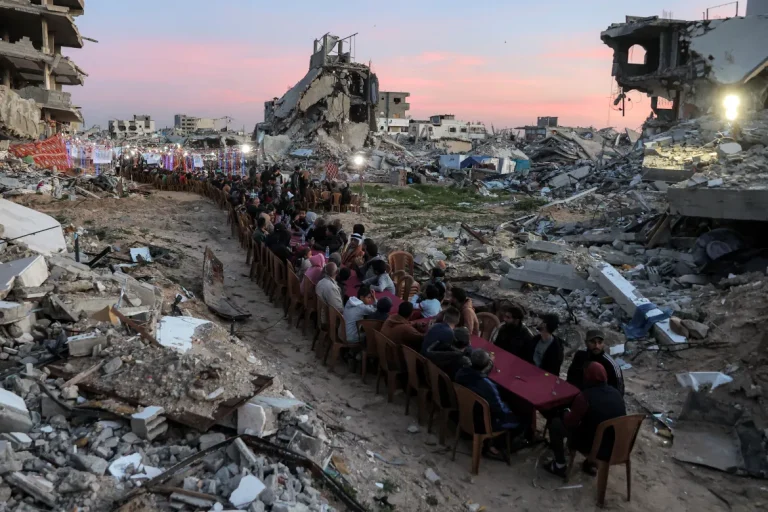
Informal traders protest against the City of Johannesburg outside the High Court in Johannesburg on Monday.
The South Gauteng High Court has ordered the City of Johannesburg to verify, register, and allocate trading spaces to informal traders within two weeks, following their controversial eviction from inner-city areas.
In a landmark ruling delivered on Monday, Judge Brad Wanless instructed the City of Johannesburg to begin the verification process on 4 November and complete it by 18 November.
The decision comes after an urgent application was brought by the Socio-Economic Rights Institute of South Africa (SERI) on behalf of the South African Informal Traders Forum (SAITF), challenging the city’s recent removal of traders from long-established trading zones.
Informal Traders Removed
The dispute began on 2 October when the city launched a clean-up operation that saw hundreds of informal traders evicted from De Villiers Street in the CBD, as well as other areas in Soweto and Alexandra.
The traders argued that the removals were arbitrary and violated their constitutional rights to earn a livelihood.
Many claimed they had not received proper trading permits since 2012, despite repeated attempts to comply with city regulations.
SERI, acting on behalf of the traders, contended in court that the city’s actions were not only unlawful but also deeply disruptive to the lives of those who rely on street trading to survive.
Advocate Deborah Rabuda, who represents the informal traders, stated that they are seeking a court order to enforce mediation under Rule 41A of the Uniform Rules.
She added that on Monday, the court would consider whether it can mandate mediation and whether additional parties may be allowed to join the case under Rule 16A.
The institute emphasised that the traders had been left without income for over a month, exacerbating their financial hardship. In response, the court acknowledged the urgency of the matter and ordered the city to expedite the verification and registration process to minimise further harm.
Judgement Pass Down
Acoording to the Daily Maverick, Judge Wanless’s ruling mandates that the city must not only verify and register qualifying traders but also allocate them appropriate trading stands. This process must be conducted transparently and fairly, ensuring that traders who were previously displaced are given priority.
“The first respondent, the City of Johannesburg, is to conduct an expedited verification/registration/reregistration and allocation process as contemplated by the Informal Trading ByLaws promulgated in the Provincial Gazette dated 14 March 2012,” Judge Wanless ruled.
The city informed the court that it had 200 available trading spaces, despite around 500 informal traders being affected.
“So this court order sends every applicant back to the process that the city applies. It is only that these applicants, taking into account that the hardships that they suggest they’ve been going through, having not traded from around the 5th or so of October, that the city has considered it necessary to expedite that process to the extent possible.
“But the city does this every day. If you go out, there are people queuing today who are not here in court, who are seeking these rights to trade as informal traders around the streets of Johannesburg. And these people will be joining those queues, albeit that in their case, considering the interruption, the city will expedite the process,” Mkhabela said.
While the city had previously limited trading to South African citizens, it now acknowledges that foreigners with valid visas or asylum permits also qualify under the court’s ruling.



